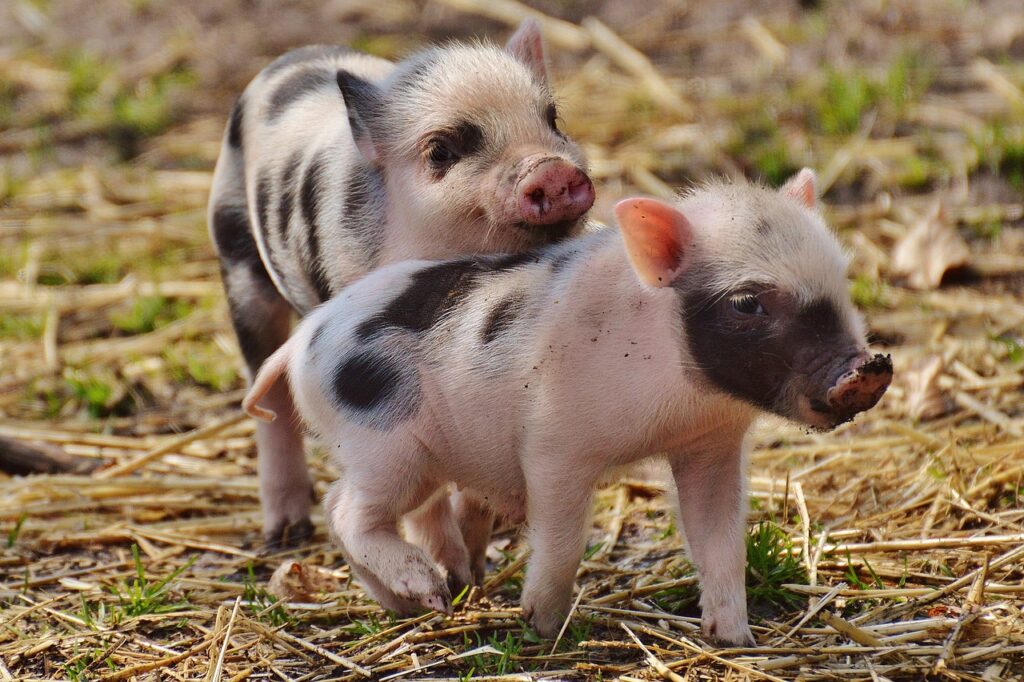
The consumption of pork is strictly prohibited in Islam, a ruling deeply rooted in the Quran, Hadiths, and Islamic jurisprudence. This prohibition is not only a spiritual command but also a reflection of health and moral considerations designed to protect Muslims from harm. This article explores the reasons behind the prohibition, interpretations by leading Islamic scholars, and how believers can avoid unintentional consumption of pork in daily life.
Don’t want to go through the translation anymore?
30 free minutes with your qualified Egyptian teacher.
The prohibition against consuming pork is explicit in several verses of the Quran, where Allah categorically identifies it as impure and forbidden for believers.
Explicit Prohibition
The first mention of this prohibition occurs in Surah Al-Ma’idah:
“Forbidden to you (for food) are dead animals, blood, the flesh of swine, and that which has been dedicated to other than Allah…” (Quran 5:3).
This verse categorizes pork alongside dead animals and sacrifices made to other deities, establishing it as an unclean food source.
Description of Impurity
In another verse, Allah further describes the nature of pork:
“Say, ‘I do not find within that which was revealed to me anything forbidden to eat by one who wishes to eat it unless it be a dead animal or blood spilled out, or the flesh of swine – for indeed, it is impure…’” (Quran 6:145).
This verse emphasizes the inherent impurity of pork, reinforcing its prohibition.
A Test of Faith
The avoidance of pork serves as a test of faith and obedience to Allah’s commandments. By abstaining from this forbidden food, Muslims demonstrate their commitment to following divine guidance.
Prophet Muhammad (peace be upon Him) reiterated the prohibition of pork in several hadiths, cautioning against consuming haram (unlawful) foods and stressing the importance of adhering to halal (lawful) dietary practices.
In a hadith reported by Ibn Abbas, the Prophet (peace be upon Him) stated:
“The one who consumes unlawful things, his prayers will not be accepted for forty days.” (Reported by At-Tirmidhi).
This hadith highlights the spiritual implications of consuming unlawful food, emphasizing its detrimental impact on a believer’s relationship with Allah.
The four major Sunni schools of jurisprudence (Hanafi, Maliki, Shafi’i, and Hanbali) are unanimous in the absolute prohibition of pork, although some details regarding the practical implications may vary.
Hanafi School:
The Hanafi school, founded by Imam Abu Hanifa, emphasizes the strict prohibition of pork. This school stresses the importance of consuming pure food and rejecting anything impure.
Maliki School:
Imam Malik considers pork to be impure (najis) and haram for consumption and handling. This school focuses on the physical and spiritual impurity associated with pork.
Shafi’i School:
The Shafi’i school, led by Imam Al-Shafi’i, holds a similar view, emphasizing that consuming or even using products derived from pork is strictly forbidden.
Hanbali School:
Imam Ahmad ibn Hanbal, founder of the Hanbali school, takes a strict approach, forbidding the consumption, sale, and trade of pork, which is considered a major impurity (najasa).
All four schools agree that consuming pork is a sinful act that has negative consequences for a believer’s spirituality.
The prohibition against pork in Islam is also justified by health considerations. Many cultures view pork as an animal that carries diseases, and scientific studies indicate that it can harbor various parasites and harmful bacteria, such as:
Trichinella spiralis: This parasite causes trichinosis, a severe illness.
Pathogenic bacteria: Pork, particularly when undercooked, can harbor bacteria like salmonella and staphylococcus aureus.
In Islam, the purity of food is a fundamental principle; consuming impure food compromises both spiritual and physical well-being.
Read Labels Carefully: Be vigilant about food products, as some may contain pork derivatives (e.g., gelatin, additives). Always check labels before consuming.
Inquire About Culinary Practices: When dining out or traveling, ask about food preparation to avoid inadvertently consuming pork.
Avoid Doubtful Areas: Steer clear of foods or products of uncertain origin to minimize the risk of unintentional consumption.
The prohibition of pork in Islam is unequivocal, as stated in the Quran, the teachings of Prophet Muhammad (peace be upon Him), and the consensus of the four schools of jurisprudence. Salafi scholars and classical jurists alike emphasize the importance of respecting this prohibition to maintain both spiritual and physical purity. By adhering to this dietary law, Muslims fulfill Allah’s commandments while safeguarding their health and faith.
Discover the experiences of our delighted clients who have thoroughly enjoyed utilizing this standout feature.
Alhamdulillah I‘m very pleased with the arabic and Qur’an lessons I receive from teacher Umm Tasneem and I‘m also content with the al-dirassa administration team who were very quick in answering any questions I had. In a month I progressed a lot and I cannot wait to continue my studies with al-dirassa. May Allah reward everyone at al-dirassa.
Verified review - view original
My Qur’an teacher is fantastic, she teaches me in a loving and kind way where I look forward to the lessons and learn so much. My Arabic teacher is equally as nice and has a lot of patience with me, she has great expertise in the field and I’ve progressed really quickly with her. Thank you Al-dirassa!
Verified review - view original

Al-dirassa Institute offers you a gift to help you begin your journey to being fluent in Arabic and learning the Quran.

Al-dirassa Institute offers you a gift to help you begin your journey to being fluent in Arabic and learning the Quran.